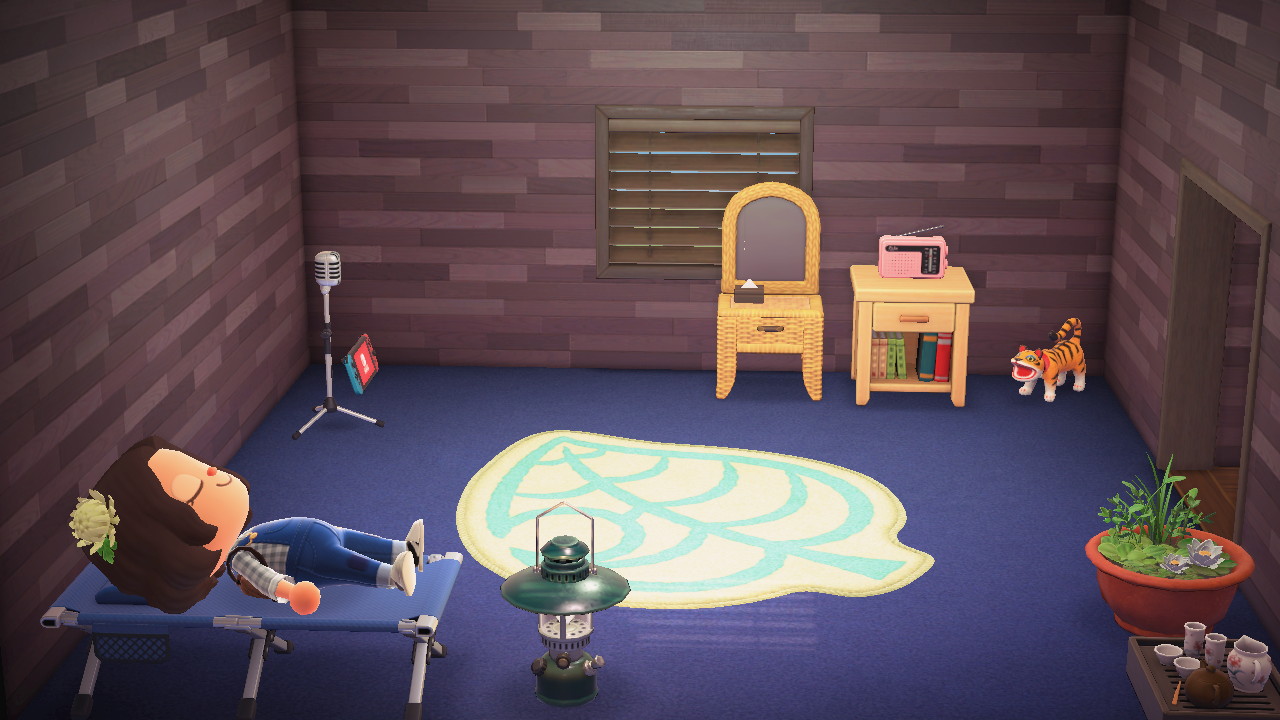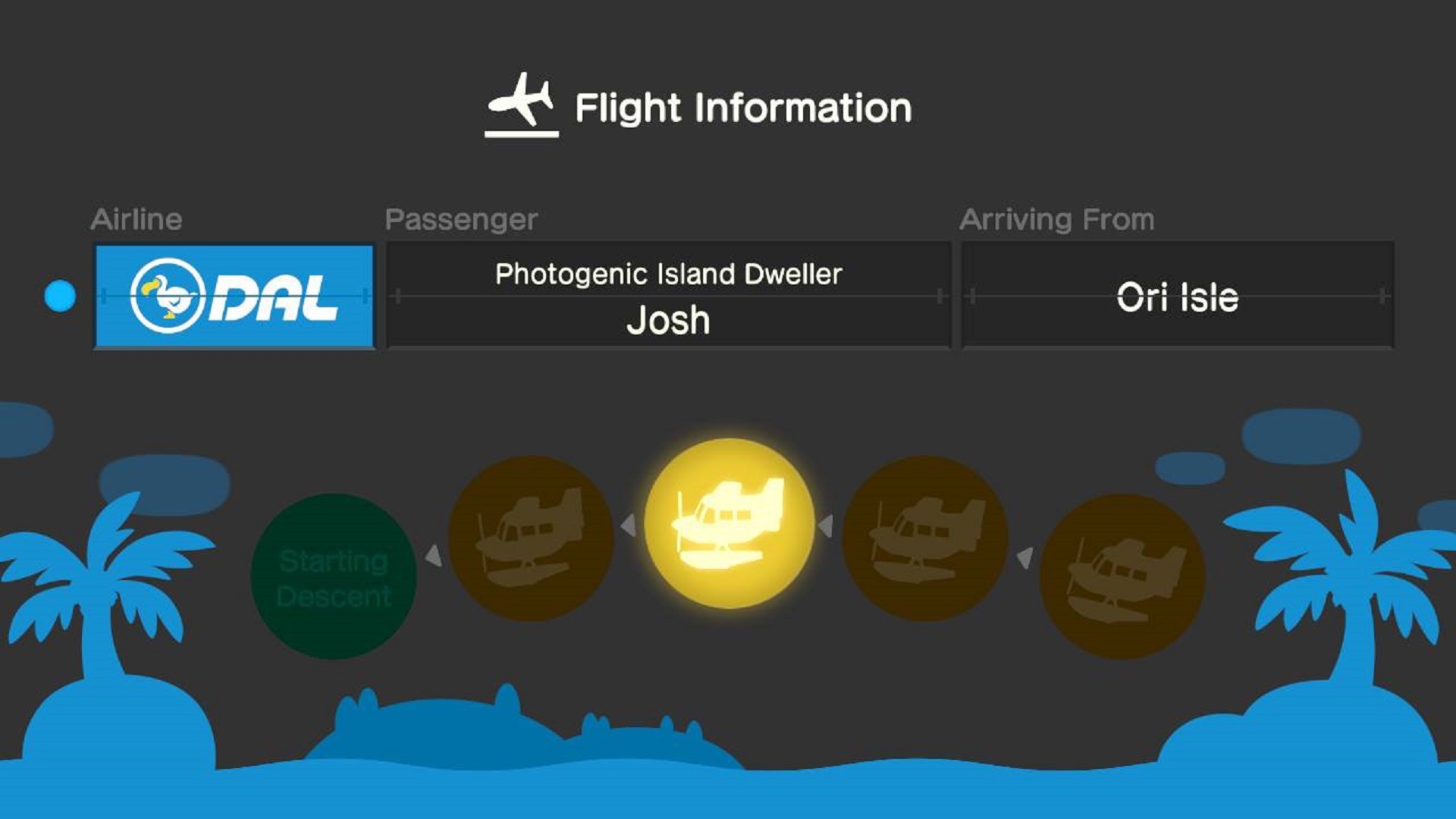
The Animal Crossing: New Horizons multiplayer options are as adorable as they are archaic. If Nintendo set out to make the most intrusive, obsolete, and whimsical multiplayer system it could imagine, then I'm fairly certain it's succeeded in that endeavour. And yet, as ridiculous as it is, I have absolutely fallen in love with the approach Animal Crossing New Horizons takes as it tries to bring islanders together.
Like many of you, I've spent the past few weeks unable, legally, to enjoy the outside world. Instead, I spent the entirety of my time sitting on my sofa, socialising with friends on a variety of desert island retreats, each in various states of disrepair. We played games of our own making, we shared rare items and fruit, and took to WhatsApp to communicate, and hit each other with nets. It was fun! It was (largely) wholesome! The wholesome fun was also put on hold every few minutes so that New Horizons could indulge in a little chaos of its own design.
If you leave your gates open at the airport – or share a Dodo code with your social media platform of choice so that strangers can visit, a mistake I won't make twice – any players on your friends list can freely make the trip over to your island. This is communicated in the most disruptive method imaginable, with all active players on the island told to get off of their NookPhones, out of the menus, and to stop what they are doing in anticipation of a new arrival. The game then shifts to a cutscene – an Arrivals board – indicating that a new guest is about to land at the airport. The first time, it was exciting. The second time, it was cute. The third, funny. By the sixth, all-caps messages are flooding the group chat: "WHO IS BLOODY COMING HERE NOW?!"
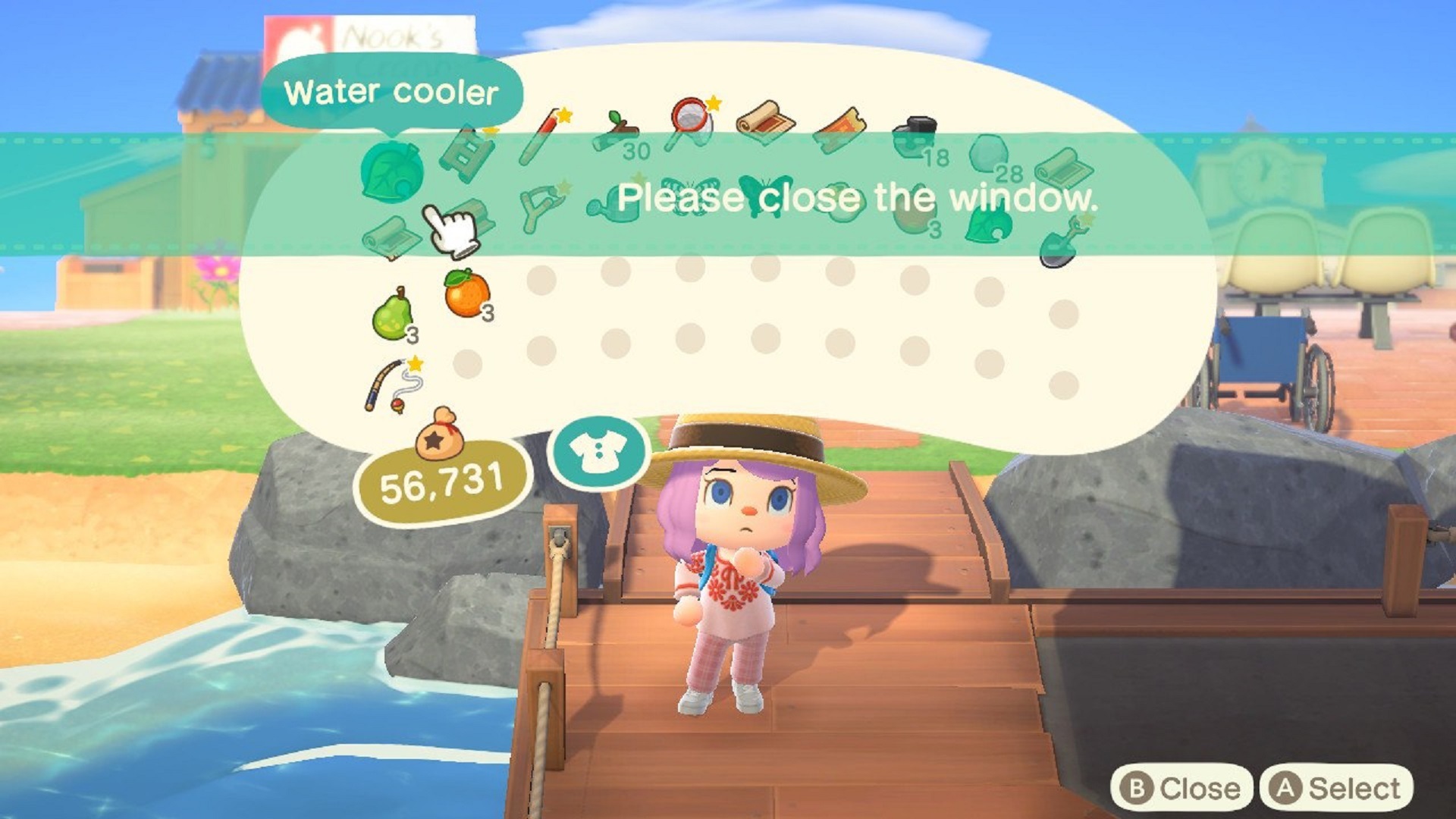
On the face of it, the system is a novel way of communicating that a friend is joining or leaving your lobby. It makes it feel as if somebody has gone out of their way to visit your island and to spend time with you. That's nice; the sort of wholesome content we all need right now. Of course, with no way to skip these cutscenes – which would have been welcomed, given that it plays something similar when somebody decides to depart too – it gets pretty old, pretty quickly.
In an industry where the other two major platform holders have taken every step possible to break down barriers and reduce points of friction between players and online services in the 17 years since Xbox Live and the earliest iteration of the PlayStation Network launched, it's fascinating how Nintendo is simultaneously behind the curve and willing to take these types of risks at all.
The arrivals/departures signal in New Horizons is a frivolous way to dress up Nintendo's archaic online ecosystem. It's likely there out of necessity, more so as a loading screen to realign your island for new visitors than anything yet, still, it's worth enduring because of what awaits you in the moments between the cutscene.
Nintendo has always been unique
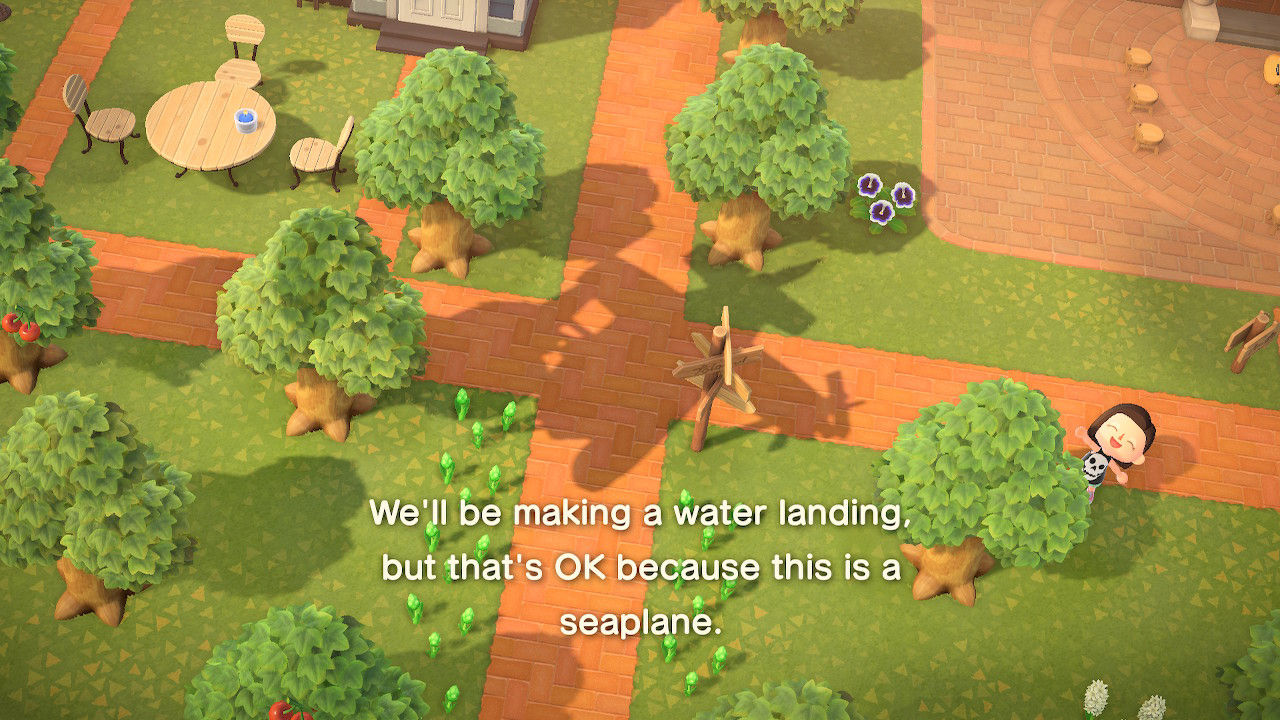
Animal Crossing has always had a rather unique approach to multiplayer. Go back to the beginning of the series, and all you were able to do is make solitary visits to neighbouring villages by train – the height of excitement in Population Growing's multiplayer derived from convincing strangers on Internet message boards to send their GameCube memory cards to you in the mail so that you could spend some time collecting their fruit and meeting their villagers. Fast forward 18 years, and now we're taking chartered flights via Dodo Airlines over the Internet, joining up with our buddies for fun and frolicking in New Horizons.
Sign up to the GamesRadar+ Newsletter
Weekly digests, tales from the communities you love, and more
Admittedly, frolicking is just about all you can do in New Horizons. Nintendo puts a hell of a lot of trust in its players. It's up to you and your friends to not only find the fun in Animal Crossing's multiplayer, but to engineer it too. The crux of Animal Crossing's solo play is in its ability to gamify routines. Each player is given the time and space to settle into a comfortable cycle of their own design, the game flexible enough to accomodate any combination of resource management and community engagement that you could possibly envision, all against the demands of a clock that runs in real-time. Translating that into the realms of local and online multiplayer is far easier said than done.
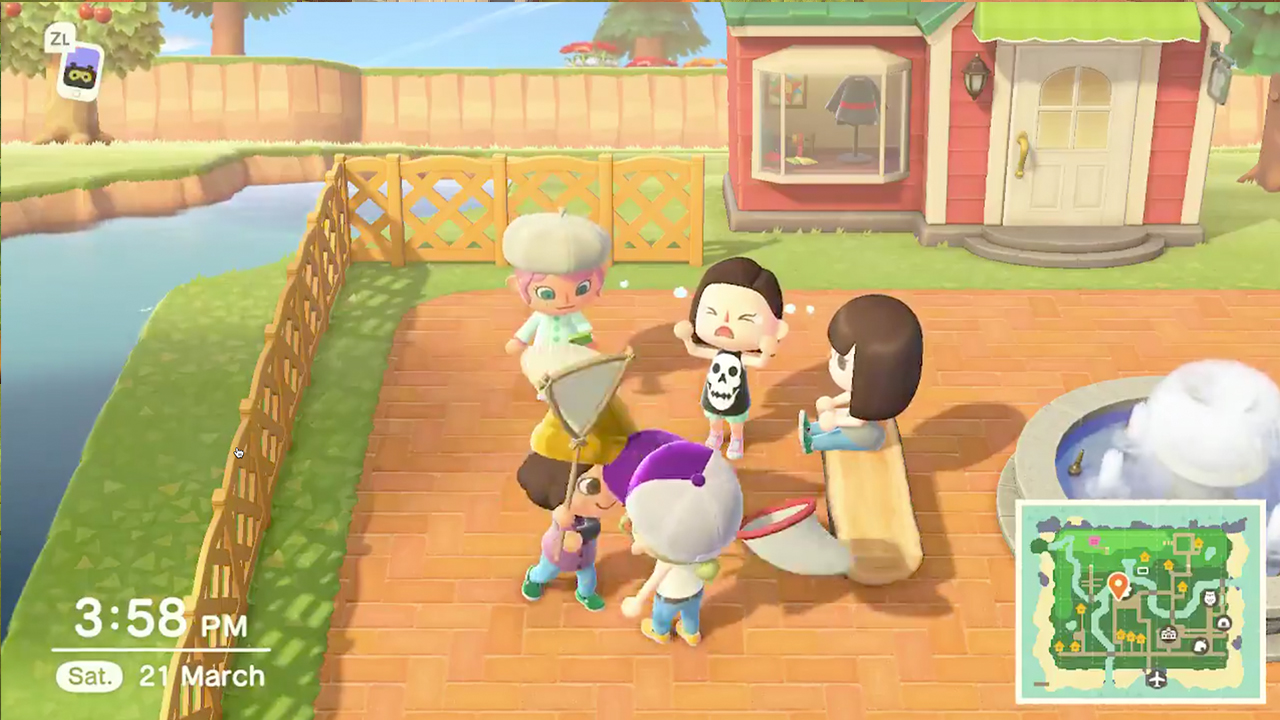
And yet, players around the world continue to find fascinating ways to engage with Animal Crossing: New Horizons, even if loading screens do play an active role in disrupting play. In the weeks since launch, I've been sending letters to friends, accepting gifts to help get my island where I want it to be, and have been assisting others to round out the selection of fruit and flowers available on their own. I've hosted tours and been on a few of my own (the unique photo opportunity spots in the Museum are delightful), with HouseParty hangouts letting the leader play the role of tour guide from a distance. I've even happened across islands with fully functioning mazes, swap shops, and art galleries. I've been invited to play games or tag, rudimentary fishing competitions, and even shouted at slowly (typing without the Nintendo Switch Online app is a nightmare) for taking millions of peaches, peaches for free – I'm only human.
Animal Crossing: New Horizons does a number of things very well. It's an extremely competent iteration over every release that has come before it. And yet, in other areas, as we see reflected in the multiplayer setup so clearly, I can't help but shake my head with just how behind the curve Nintendo is in this respect. Yet every time I visit a friends' island I can't help but leave with a feeling of compulsive jealousy – either because of the state of their beautiful abodes compared to my own, or because of the lovely neighbours inhabiting it – and that's propelling me through these early weeks more so than anything else. I'll endure a few loading screens for the foreseeable future if it means I can escape the nightmare isle I have accidentally created through indecision.

We've started a new series that pits the team against each other with some fiendish gaming tests. Check out Challenge Radar Episode 4 here.

Josh West is the Editor-in-Chief of GamesRadar+. He has over 15 years experience in online and print journalism, and holds a BA (Hons) in Journalism and Feature Writing. Prior to starting his current position, Josh has served as GR+'s Features Editor and Deputy Editor of games™ magazine, and has freelanced for numerous publications including 3D Artist, Edge magazine, iCreate, Metal Hammer, Play, Retro Gamer, and SFX. Additionally, he has appeared on the BBC and ITV to provide expert comment, written for Scholastic books, edited a book for Hachette, and worked as the Assistant Producer of the Future Games Show. In his spare time, Josh likes to play bass guitar and video games. Years ago, he was in a few movies and TV shows that you've definitely seen but will never be able to spot him in.
